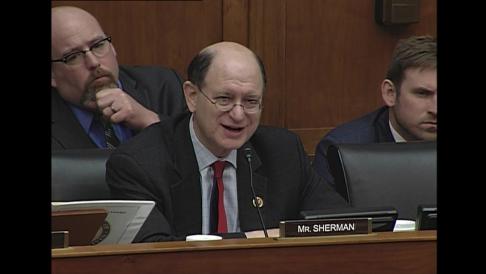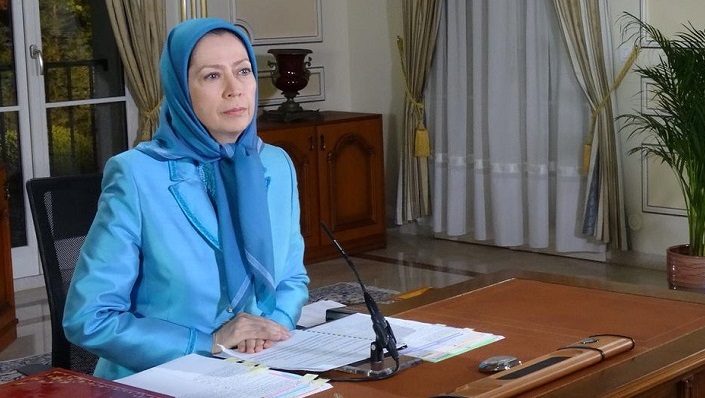The much-discussed article in the New York Times Magazine describing the Iran Lobby orchestrating of the push for the Iran nuclear deal has set off a chain of events throughout American politics and news media have begun digging deeper into the Iran lobby’s role in the effort to portray the Iranian regime as a moderate government.
Revelations have rippled out like so many stones dropped into a still pond, intersecting and converging as more news reports have come out detailing the flow of cash throughout the Iran lobby and into news organizations to help promote the nuclear deal.
Other stories have gone on to examine in great detail the organization and structure of the Iran lobby’s plans years before actual negotiations began with the Iranian regime, all of which goes to demonstrate the long view the mullahs have in achieving their goals.
Now Congress has stepped up its scrutiny, including demands for greater accountability from the Obama administration, as well as the Iranian regime’s compliance of a nuclear deal that is now suspected of being badly and deeply flawed.
This all came to the forefront as Treasury and State Department officials appeared before the House Foreign Affairs Committee in an effort to reassure skeptical Republican and Democratic lawmakers.
“We need to make sure it’s implemented to the letter,” said New York Democratic Rep. Eliot Engel, “and hold Iran’s feet to the fire with respect to” what he called its troublemaking in the region.
Engel and other lawmakers cited Iran’s support for the militant groups like Hezbollah, as well as Shiia militants in Iraq, Houthi rebels in Yemen and the regime of Syria’s President Bashar al-Assad. They also raised Iran’s ballistic missile tests in March, in particular two test-fired rockets inscribed with the Hebrew phrase “Israel must be wiped off the Earth,” according to the regime’s semi-official Fars News Agency.
Rep. Brad Sherman (D., Calif.) heaped criticism on the Iranian nuclear deal at the hearing, calling for more sanctions on Iran to punish its military involvement in Syria.
“People in this country want us to get along with everyone around the world. We long for peace. And there are those who say that sanctions contradict that,” Sherman said. “But when you look at what Iran has done in Syria, hundreds of thousands, perhaps a million people killed by Assad, with funds provided, weapons provided, thugs provided by the Iranian government, when you see people killed by barrel bombs and sarin gas, we realize that the right response to the Iranian regime cannot be ‘kumbaya.’”
Sherman and Rep. Ed Royce (R-Calif.), the committee chairman, raised the potential for the reauthorization of the Iran Sanctions Act to keep the bulk of financial restrictions in place, especially in light of the regime’s actions following the completion of the nuclear deal.
Mark Dubowitz of the Foundation for Defense of Democracies, gave blistering testimony explaining how the Iranian regime is taking advantage of a weak nuclear deal and the Obama administration’s persistent efforts to assist the regime.
“Iran is engaged in a robust effort to legitimize its financial sector despite a decades-long rap sheet of financial crimes and illicit financial activities that it shows no sign of curbing. Since the conclusion of the JPCOA, the Obama administration has missed numerous opportunities to push back against Iran’s legitimization campaign,” Dubowitz said.
“Instead of insisting on an end to Iran’s continuing malign activities (terrorism, human rights violations, and other destabilizing activities in Syria, Iraq, Yemen, Lebanon, and other countries across the Middle East), and using non-nuclear sanctions to deter and punish these activities, the administration is now effectively acting as Iran’s trade promotion and business development authority. Indeed, the administration may be departing from its original JCPOA negotiating position that it would only suspend or lift so-called U.S. “nuclear sanctions” under its executive authority. Rather, the administration is allowing Iran to hold the U.S. responsible for delivering financial and economic outcomes,” Dubowitz added.
Dubowitz’s testimony also highlighted the awkwardness of Secretary of State John Kerry’s trips around the world recently as he found himself in the odd position of negotiating on behalf of promoting investment in the Iranian regime.
It is a situation that Rep. Royce highlighted at the hearing that Kerry was taking “the odd step” of reassuring foreign firms that Iran is open for business, Royce said, while “other administration officials go so far as to say that Iran economic growth is in our national security interest.”
It’s now a fact that the reassurances by the Iran lobby have less impact now that the full scope of their efforts have come to light. Coupled with the regime’s own actions over the past year, the entire basis of the Iran nuclear agreement – that the mullahs could be trusted to adhere to any international agreement – was built on an “echo chamber” of lies.
By Michael Tomlinson

